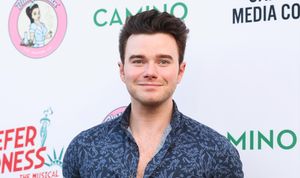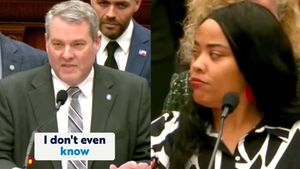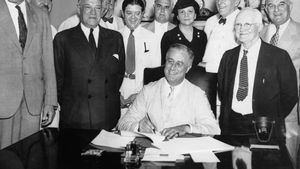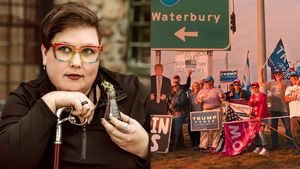I wanted, more than anything, to be included.
I wanted to be liked, to be wanted to be a popular girl or a jock. Anything that put me in the center of attention. And in some ways, growing up, that came true. But it wasn't in the cafeteria, the locker room, on the field, or even on the stage.
It happened in the tiny spaces I created for myself, my friends, and others.
This place was in the corners of the club, the back of a friend's friend's house party, and the outside areas at prom and homecoming. Now, I spend my time devising dance theatre and writing grants to continue this quest for space just to be. I used to despise the idea of creating a "safe space." Even today, I cringe at making space when there is so much of it already. And the idea of taking up space is a whole other thing.
Yet, simultaneously, there is no greater feeling than creating or taking up space, making it safe, and inviting others to witness and find freedom.
When I was in high school figuring out my sexuality, I joined the Queer & Questioning Club. To this day, I think about the club's impact on me as a person, artist, leader, and lover. The premise of the club was not to out students or teach us how to be gay. It was more like a philosophy club where we talked about culture, life, the world, and how it made sense to us. The club encouraged us to question everything and to think, feel, and act with fierce curiosity. That included how I wanted to dress, what I wanted to study, and who I wanted to date. And for the art-inclined, to think not about what you're making but how.
And to this day, I cannot separate queerness from questioning.
As a cis, Black man who sleeps with other men, I have lived a life where questioning would often get me into the kind of trouble that would likely get me hurt. But I learned that there is another kind of questioning that opens doors to experiences, forges new paths and creates community.
The work that I continue to do is about inclusion, carving out space for the young, old, the in-crowd, and the outsiders. It shows, in many ways, how we all exist together, whether you see it or not. This is yet another opportunity where I am co-creating spaces of questioning, queerness, and community.
I will not, and ask you not to, take for granted the freedom won for us, as it is not always easy to grasp or maintain.
Like theatre and life, all we have—singing and dancing at the club, the house party, or a lonely corner wherever you can find it—are moments that remind us to let go, give in, and just be.
 Thomas Dunn
Thomas Dunn
Raja Feather Kelly is a choreographer, director, and co-creator of The Re-Emancipation of Social Dance, an interactive dance-theater work produced by Intercultural Journeys in Philadelphia. Raja is the artistic director of the dance-theatre-media company The feath3r Theory. His most recent work includes Lempicka (Broadway), A Strange Loop (Playwrights Horizons), and Fairview (Soho Rep, Berkeley Rep, TFANA, and winner of the 2019 Pulitzer Prize for Drama).
Voices is dedicated to featuring a wide range of inspiring personal stories and impactful opinions from the LGBTQ+ and Allied community. Visit out.com/submit to learn more about submission guidelines. We welcome your thoughts and feedback on any of our stories. Email us at voices@equalpride.com. Views expressed in Voices stories are those of the guest writers, columnists and editors, and do not directly represent the views of Out or our parent company, equalpride.




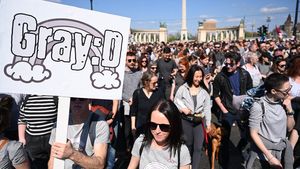



























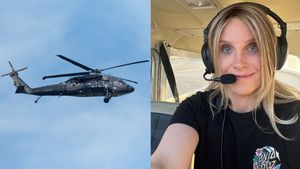

 Thomas Dunn
Thomas Dunn